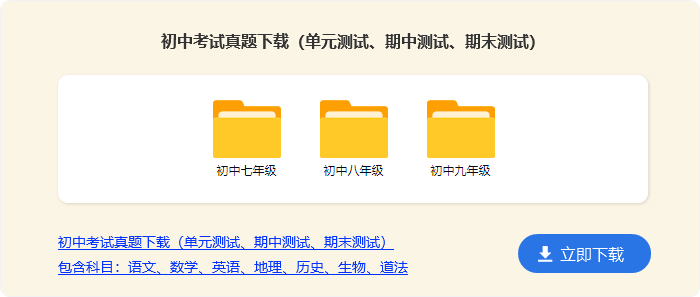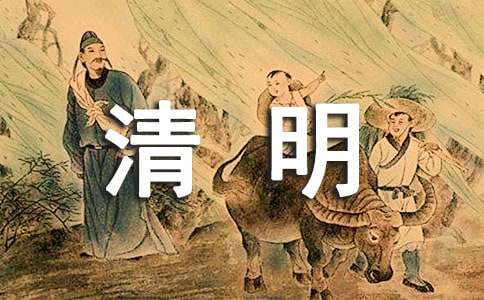
- 相关推荐
初中生清明节英文日记
以下是小编为大家整理的初中生清明节英文日记,欢迎阅读和借鉴。

初中生清明节英文日记【第一篇】:
In contrast to the sadness of the tomb sweepers, people also enjoy hope of Spring on this day。 The Qingming Festival is a time when the sun shines brightly, the trees and grass become green and nature is again lively。 Since ancient times, people have followed the custom of Spring outings。 At this time tourists are everywhere。
People love to fly kites during the Qingming Festival。 Kite flying is actually not limited to the Qingming Festival。 Its uniqueness lies in that people fly kites not during the day, but also at night。 A string of little lanterns tied onto the kite or the thread look like shining stars, and therefore, are called "god‘s lanterns。"
The Qingming Festival is also a time to plant trees, for the survival rate of saplings is high and trees grow fast later。 In the past, the Qingming Festival was called "Arbor Day"。 But since 1979, "Arbor Day" was settled as March 12 according to the Gregorian calendar。
初中生清明节英文日记【第二篇】:
Qingming Festival, also known as Pure Brightness Festival or Tomb-sweeping Day, is one of the 24 segments of the Chinese calendar。 It normally falls on the 4th or 5th of April, between spring plowing and summer weeding, and is a time to pay respects to one's ancestors and to tidy their gravesite。 On this day, whole families, young and old, go to the gravesite of deceased family members to burn incense and perform a ritual offering while clearing away plant overgrowth from the gravesite。
Qingming Festival is when Chinese people visit the graves or burial grounds of their ancestors。 Traditionally, people brought a whole rooster with them to the graves visited but the occasion has become less formal over time。 The festival originated from Hanshi Day (寒食节, literally, Day with cold food only), a memorial day for Jie Zitui (介子推)。 Jie Zitui died in 636 BC in the Spring and Autumn Period。 He was one of many followers of Duke Wen of Jin before he became a duke。
Once, during Wen's 19 years of exile, they had no food and Jie prepared some meat soup for Wen。 Wen enjoyed it a lot and wondered where Jie had obtained the soup。 It turned out Jie had cut a piece of meat from his own thigh to make the soup。 Wen was so moved he promised to reward him one day。 However, Jie was not the type of person who sought rewards。 Instead, he just wanted to help Wen to return to Jin to become king。
Once Wen became duke, Jie resigned and stayed away from him。 Duke Wen rewarded the people who helped him in the decades, but for some reason he forgot to reward Jie, who by then had moved into the forest with his mother。 Duke Wen went to the forest, but could not find Jie。 Heeding suggestions from his officials, Duke Wen ordered men to set the forest on fire to force out Jie。 However, Jie died in the fire。 Feeling remorseful, Duke Wen ordered three days without fire to honour Jie's memory。 The county where Jie died is still called Jiexiu (介休, literally "the place Jie rests forever")。
初中生清明节英文日记【第三篇】:
The tomb sweeping day is one of the traditional festivals in China。 On April 5th, people start to visit their ancestors’ tombs。 Generally speaking, people will bring the home-made food, some fake money and paper-made mansion to their ancestors。 When they start to honour their ancestor, they will light up some candles and incense, put some flowers around the tombs。
The most important thing is to put the home-made food in front of the tombs。 The food, also known as sacrifices, is usually made up with a chicken, a fish and some pork。 It’s a symbol of the offspring’s respect to the ancestors。 People believe that the forbears will share the food with them。 The children dedicate the food and money to their forbears in order to show their love and caring。 The young offspring will go down on their knees and pray for their ancestors。 They can say their wishes in front of the tombs and the ancestors will make their dreams come true。
In some provinces of China, people use different activities to commemorate this day, for instance, spring-outing, swinging, tree planting and making special food。 One special food is Ay Tsao rice balls。 It looks like Tang-yuan, but its colour is green。 Mix the ay tsao juice with the rice powder, then make it into small balls。 The Ay Tsao rice ball is done。 People believe that eating ay tsao rice balls can get rid of the bad luck and everything will go smoothly。 Other activities such as spring outing, tree planting are the other ways to commemorate the forbears。 For one thing, it is a sign that people should look into the future and embrace the hope; for another thing, we do hope our ancestor rest in peace。
初中生清明节英文日记【第四篇】:
Ching Ming festival is a traditional Chinese festival, has a history of two thousand five hundred years; Its main traditional cultural activities are: grave, outing, cockfighting, swing, play mat, pull hook, tug-of-war), etc。 The members (the grave), is very old。 Tomb-sweeping day, as a traditional culture, it is a full of mysterious colorific festival, on this day, the pedestrians on the road are missing people who died, to express their respect and grief!
Ching Ming festival, in hainan many locals call it the "qingming festival"。 Middle age the qingming festival is very important, if not as a legal holiday, they will also take time to go home "qingming festival"。 This suggests that the qingming festival has become a culture, become a man of the late express a way of missing loved ones。
Qingming festival, is a kind of Chinese traditional culture recognition and respect。 Qingming festival is very important in the ancient tradition of a festival, is also the most important festival of festivals, was the day of ancestor worship and the grave。 This grave, the shrine of the dead an activity。 The han nationality and some minority are mostly in the tombs。 According to the old tradition, the grave, people to carry goods such as especially fruit, paper money to the grave, will be food for offering in the family tomb, then paper incineration, new soil up to the grave, fold a few branches pale green branches inserted in the grave, and then salute kowtow worship, finally eat especially home。 The tang dynasty poet tu mu's poem "qingming" : "rains fall heavily as qingming comes, and passers-by with lowered spirits go。 Restaurant where? Boy pointed apricot blossom village。" Write the tomb-sweeping day is special atmosphere。 Until today, tomb-sweeping day ancestor worship, mourning the late relatives customs still prevail。 And the more brought to the attention of the people。
Chinese is influenced by its culture, make clear the Chinese memorial ancestors festival。 Ancestor worship in qingming festival people are back, this is a kind of culture, a kind of habit。
初中生清明节英文日记【第五篇】:
In contrast to the sadness of the tomb sweepers, people also enjoy hope of Spring on this day。 The Qingming Festival is a time when the sun shines brightly, the trees and grass become green and nature is again lively。 Since ancient times, people have followed the custom of Spring outings。 At this time tourists are everywhere。
People love to fly kites during the Qingming Festival。 Kite flying is actually not limited to the Qingming Festival。 Its uniqueness lies in that people fly kites not during the day, but also at night。 A string of little lanterns tied onto the kite or the thread look like shining stars, and therefore, are called "god‘s lanterns。"
The Qingming Festival is also a time to plant trees, for the survival rate of saplings is high and trees grow fast later。 In the past, the Qingming Festival was called "Arbor Day"。 But since 1979, "Arbor Day" was settled as March 12 according to the Gregorian calendar。
【初中生清明节英文日记】相关文章:
清明节日记_日记01-10
暑假英文日记05-23
英文日记格式07-13
暑假英文日记_日记大全05-20
清明节的日记09-10
清明节日记10-25
清明节的日记03-16
(精选)清明节日记07-10
清明节日记07-28
清明节日记03-29






